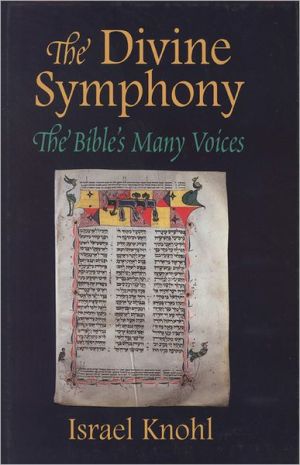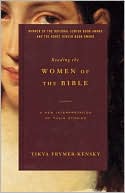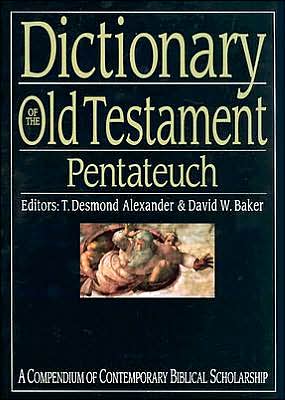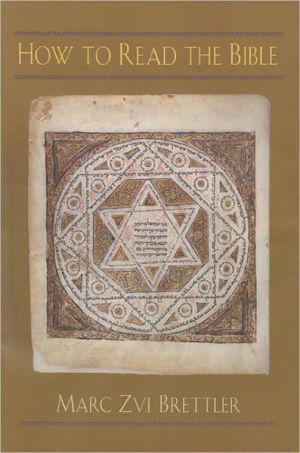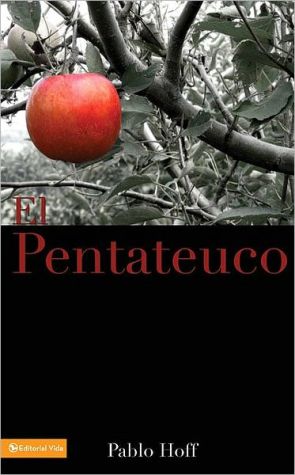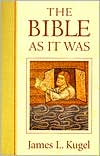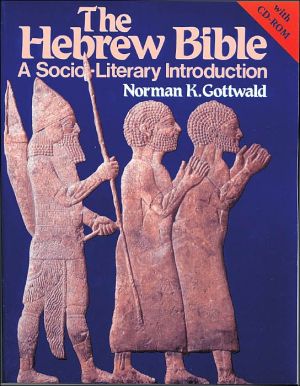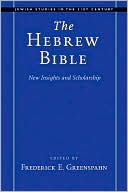The Divine Symphony: The Bible's Many Voices
In this fascinating book, Knohl shares his understanding of how the Torah was edited into its final form. He bridges the gap between ancient Israel (c.1400-586 B.C.E.) and Second Temple times (c.536 B.C.E.-70 C.E.) by showing the continuity between these eras and the gradual evolution of the biblical worldview, which formed the foundation of later rabbinic Judaism. The book focuses on the editing of the Torah, interpreting the textual evidence, most notably contradictions and redundancies, to...
Search in google:
In this fascinating book, Knohl shares his understanding of how the Torah was edited into its final form. He bridges the gap between ancient Israel (c.1400-586 B.C.E.) and Second Temple times (c.536 B.C.E.-70 C.E.) by showing the continuity between these eras and the gradual evolution of the biblical worldview, which formed the foundation of later rabbinic Judaism. The book focuses on the editing of the Torah, interpreting the textual evidence, most notably contradictions and redundancies, to show that the idea of a pluralistic understanding of Revelation can be traced back to the editing of the Torah itself. Knohl's interpretation of biblical composition challenges a popular trend in contemporary biblical scholarship: the idea that ancient Israel never existed as a historical reality, but was invented and retrojected back in time by later Israelite priests as part of their national myth. This interpretation was initially put forward by Wellhausen, the German Christian Bible scholar, whose views laid the groundwork for later anti-Semitic attacks on Judaism. Knohl brings to his book an impressive background in Dead Sea Scrolls scholarship, research in messianism, and a thorough grounding in Rabbinics—a breadth of expertise rare among academics. His innovative writing expands on the notion that the Torah expresses a pluralistic view of God; that there is continuity between ancient Jewish texts and Rabbinic Judaism; and that the Dead Sea Scrolls reveal much about biblical theology, including attitudes toward messiahs and divine providence.
Dedication and AcknowledgmentsIntroductionCh. 1The Editing of the Torah1Ch. 2The Uniqueness of the Priestly Torah9Ch. 3Knowing Good and Evil: God and Humanity in J's Story of Beginnings37Ch. 4Good, Evil, and Holiness in Isaiah and the Holiness School51Ch. 5Israel's Debate over God's Sanctuary71Ch. 6Israel's Debate over King and Messiah87Ch. 7New Conceptions of Evil and Suffering during the Period of Exile and Return101Ch. 8The Emergence of the Sects in Ancient Judaism123Postscript145Abbreviations147App. ADating the Sources of the Torah149App. BBiblical Passages and Their Source Derivations157Notes159Index of Biblical Passages and Other References193Subject Index197
\ Interpretation: A Journal of Bible and Theology"This book is to be praised as an invigorating celebration of the different voices of the biblical tradition."—Interpretation: A Journal of Bible and Theology\ \ \ \ \ Religious Studies Review"Through judicious use of critical scholarship and Jewish exegetical traditions, [Knohl] explores and even celebrates diversity of opinion on core issues. . . . Well worth reading."—Religious Studies Review\ \ \ Theological Studies"There is much to like about this short work. . . . provocative and worthy of consideration."—Theological Studies\ \ \ \ \ Theological Studies"There is much to like about this short work. . . . provocative and worthy of consideration."—Theological Studies\ \ \ \ \ \ Religious Studies Review"Through judicious use of critical scholarship and Jewish exegetical traditions, [Knohl] explores and even celebrates diversity of opinion on core issues. . . . Well worth reading."—Religious Studies Review\ \ \ \ \ \ Interpretation: A Journal of Bible and Theology"This book is to be praised as an invigorating celebration of the different voices of the biblical tradition."—Interpretation: A Journal of Bible and Theology\ \ \
